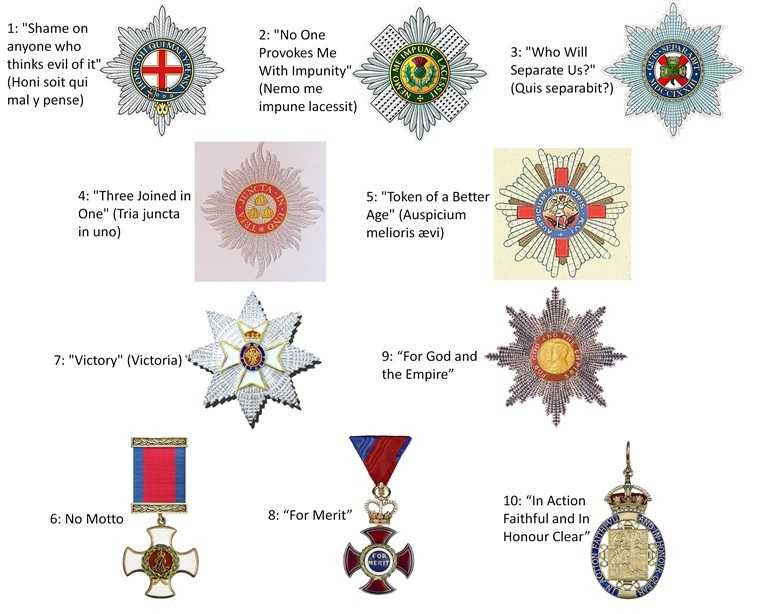
Remember Our Glorious Motto Trivia Quiz
The United Kingdom is a country with a long history, including many orders of chivalry, each of which has its own motto. Can you match the Order to its motto and associated medal or badge?
A label quiz
by Red_John.
Estimated time: 4 mins.
- Home
- »
- Quizzes
- »
- World Trivia
- »
- Organizations
